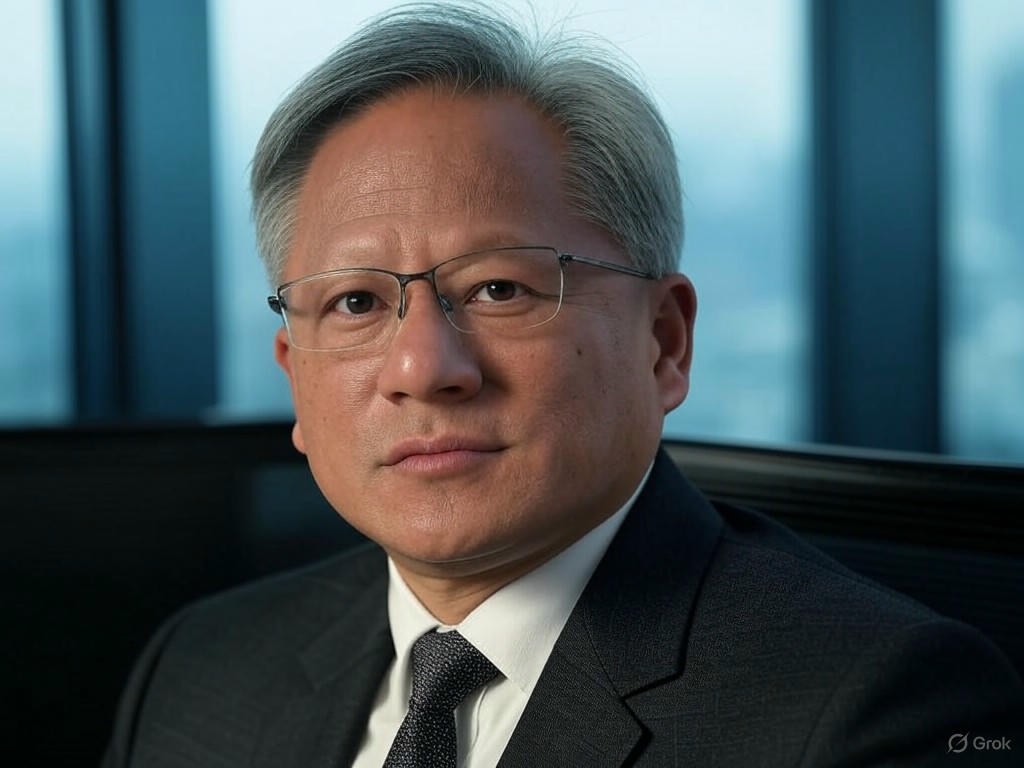Nvidia’s Jensen Huang Clashes with Anthropic CEO Over AI’s Future
In a surprising turn of events in the tech world, Nvidia’s visionary CEO, Jensen Huang, has openly expressed significant disagreement with Dario Amodei, the head of Anthropic, regarding the trajectory of advanced artificial intelligence. Huang, whose company has been at the forefront of AI hardware innovation with its cutting-edge GPUs, recently shared his candid thoughts during a high-profile industry conference. While Nvidia continues to power the AI revolution, Huang’s latest remarks have sparked a lively debate about where this transformative technology is headed.
The crux of the disagreement lies in their contrasting visions for AI’s evolution. Amodei, known for his cautious optimism about AI’s potential to solve complex human problems, has often emphasized the need for robust safety measures as systems grow more autonomous. He envisions a future where AI could rapidly outpace human oversight if unchecked, advocating for stringent frameworks to prevent misuse or unintended consequences. Huang, on the other hand, appears to take a more pragmatic stance. While he acknowledges the importance of responsible development, he seems skeptical of predictions that paint AI as an imminent, uncontrollable force. Instead, he believes the industry’s focus should remain on harnessing AI’s capabilities to drive innovation across sectors like healthcare, automotive, and entertainment, rather than fixating on speculative risks.
This public divergence of opinions between two influential figures in the AI space underscores a broader tension within the industry. As companies race to develop more powerful models, questions about ethics, regulation, and the pace of progress are becoming increasingly urgent. Nvidia, under Huang’s leadership, has positioned itself as a key enabler of AI through its hardware, empowering countless startups and giants alike. Meanwhile, Anthropic, with Amodei at the helm, has carved out a niche by prioritizing AI systems designed with safety and alignment to human values in mind. Their differing philosophies highlight a critical crossroads: should the industry prioritize speed and scale, or caution and control?
What makes this clash particularly noteworthy is the potential impact on public perception and policy. As AI continues to permeate everyday life—from virtual assistants to autonomous vehicles—leaders like Huang and Amodei play a pivotal role in shaping narratives around its benefits and dangers. Huang’s pushback against Amodei’s forecasts could encourage a more balanced dialogue, urging stakeholders to weigh both the transformative promise of AI and the ethical dilemmas it poses. It also serves as a reminder that even within a field driven by data and algorithms, human perspectives and values remain central to the conversation.
As the debate unfolds, the tech community and beyond will be watching closely. Will Huang’s confidence in AI’s manageable growth inspire bolder innovation, or will Amodei’s warnings prompt stricter oversight? For now, one thing is clear: the future of artificial intelligence is not just a matter of code and circuits—it’s a deeply human story, shaped by the visions and disagreements of its most prominent pioneers.


